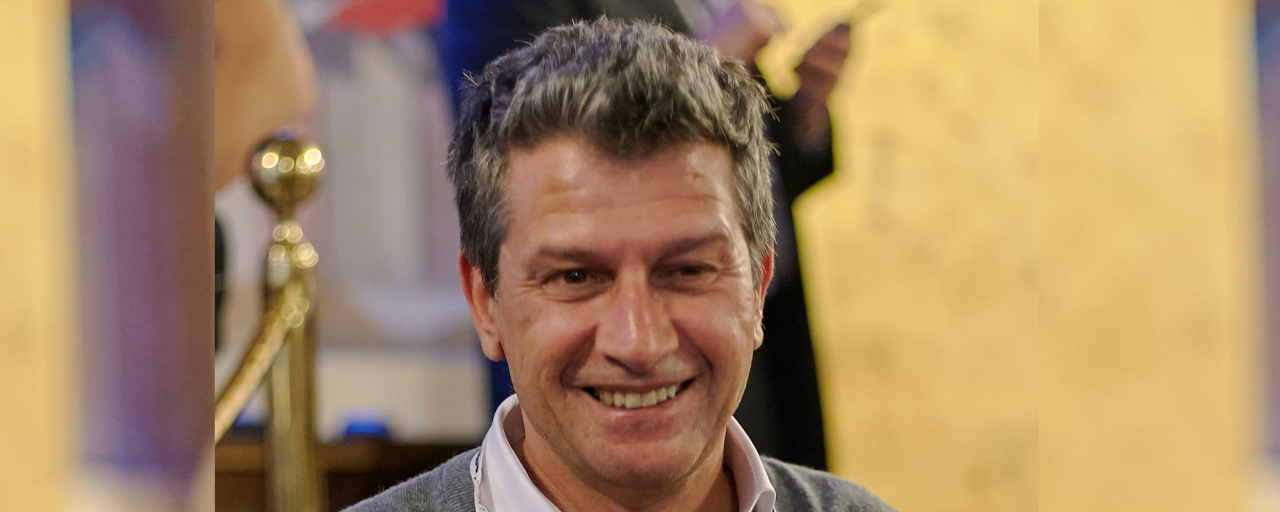Gianluca Dettori, among the leading experts on hi-tech and digital innovation in Italy, founder, and partner of Primomiglio SGR, now Primo Ventures, and President of Italian Tech Alliance, the association that brings together the main players in innovation in Italy, of which IAG is also a member, has no doubts: "First of all, there were people." People who, like him, chose to create something that did not yet exist in Italy. Pioneers of the Italian innovation ecosystem who started by cultivating a dream and committing themselves, day after day, beyond any easy defeatism, to make it more concrete. Today? "There are still some things left to do, but we definitely have a large number of chickens and a nice basket of eggs."
Dettori, how do you begin your journey in the world of venture capital?
"I started out as an entrepreneur and my venture - Vitaminic, a platform for the distribution of digital music on the web and mobile, ed. -, was made possible precisely thanks to Venture Capital, with a €50 million-plus raise. Like all adventures, however, at some point they change, they surprise you. That's what happened to me: I left the CEO position and took a three-year sabbatical. I didn't know exactly what I was going to do with the rest of my life. My initial plan was to move to San Francisco, which was a bit of a tech Mecca. Then, the simplest and most common thing in the world happened: I met my wife, fell in love, and we started a family. We wanted our children to grow up in Italy, and so, I stayed. And it was precisely becoming a father that triggered something in me. Those were the years when young people were being described as eternal "bamboccioni," yet I, in my career, had met dozens, if not hundreds, of fine young men and women, with flourishes of education. Of course, all too often they were forced to settle for routine, unvaluing and not at all growth-oriented jobs. This was not the country I wanted for my children. So, I decided to start a permanent Venture Capital business with other friends and colleagues: dPixel. It was 2006."
The rest is history. He founded and is chairman of Primomiglio SGR, now Primo Ventures, a venture firm that manages funds specializing in the digital sector (Barcamper Ventures, Barcamper Ventures Lazio and Primo Digital) and in the new space economy (Primo Space Fund), becoming a key player in a sector that is undergoing profound evolution. How do you rate Italian venture capital today?
"Compared to 15 years ago, everything has really changed. There have been some milestones, such as Minister Passera's startup decree during the Monti government, the birth of IAG, the startup of Fondo Italiano di Investimenti. The turning point came when institutions decided to give attention to this issue. And today, the commitment of Cassa Depositi e Prestiti is total. The development of these forces in the market has also allowed Italy to already attract a lot of capital from abroad, often having as a partner the European Investment Fund, which for many years now has been closely following our ecosystem by investing very significant capital. By bringing all these players together, portfolios have become significant, startups have begun to proliferate, and capital has increased. Perhaps, we did not think either that it would be possible to change things so profoundly. The facts had to show us, the reality. Now we are there, and we have no more doubts: Italy is also a country for Champions. One example out of all? Cortilia. I still remember the meeting in front of a power point, their first presentation, and then, now, the great success with a 40-million-euro turnover and a 400-person company. It's really true that startups are like bumblebees: you don't know how they fly, but they succeed very well."
In March 2021, he was appointed president of Italian Tech Alliance, the association that brings together the main players in innovation in Italy, which was initially founded with the aim of developing a think tank to give greater voice to the world of VC and investors in innovation. Today the association, of which IAG is also a member, sees equal representation of investors and entrepreneurs, as is the case in other European countries. What actions could foster the further development of the innovation ecosystem?
"I could answer with an emphasis on capital, but the truth is that money is not everything. Of course, we have to deal with more flourishing markets, but Cassa Depositi e Prestiti is making a great effort to catch up, new funds are starting up, there are interesting initiatives on corporate venture capital, accelerators spread across the territory. In short: there is an infrastructure that didn't exist before. What we still need to work on, and it is crucial to do it with realities like IAG, is the culture of innovation that needs to be spread at different levels. Also, we need to be more connected to the international world, and this is one of the priority goals that I myself have given myself with Italian Tech Alliance. I would like to see a more open and simpler market, that could make a difference. To achieve this, we need collaboration on multiple fronts: education, stakeholders, founders, investors, government, businesses. Real teamwork."
After all, venture capital is essential for social-economic growth not only for startups but also for the national economy. What is the added value that Italian Angels for Growth can provide in this context and what role could it play to stimulate the birth of new startups and foster their growth to the point of accompanying them into the arms of VCs?
"The work of IAG has been and is extremely important. I still remember the beginnings, thanks to the happy intuition of Ambassador Spogli. It was through the Embassy that we met and began to collaborate. There, getting to know each other is crucial because ours is a people-based business: you have to meet each other to generate trust. The IAG angels have done an outstanding job: they took risks, they invested, they believed in this system and this country. They have grown over the years to what they are today. And for those, like me, who are involved in venture capital, they are exceptional partners."
One of the experiences you shared concerns Cubbit, the first European distributed cloud storage provider started by four Italian students. Both Primo Ventures and IAG participated in the startup's Series A round. What did this collaboration leave you with?
"Both we and IAG focus on early-stage seed, the early stage, and that is what we are most passionate about. IAG's angels are very good at placing themselves alongside the entrepreneur at this stage: they incorporate expectations, market knowledge, technologies, money, of course. In short, they generate virtuous mechanisms that are good for the whole system, and our collaboration with Cubbit, and with other experiences, is very good. Therefore, I wish IAG to continue in this way and, possibly, to do even better, pushing its angels to take root in every area of Italy, really taking an example from the American model where angels are the strength of the economy. A possible destiny, even in Italy."








